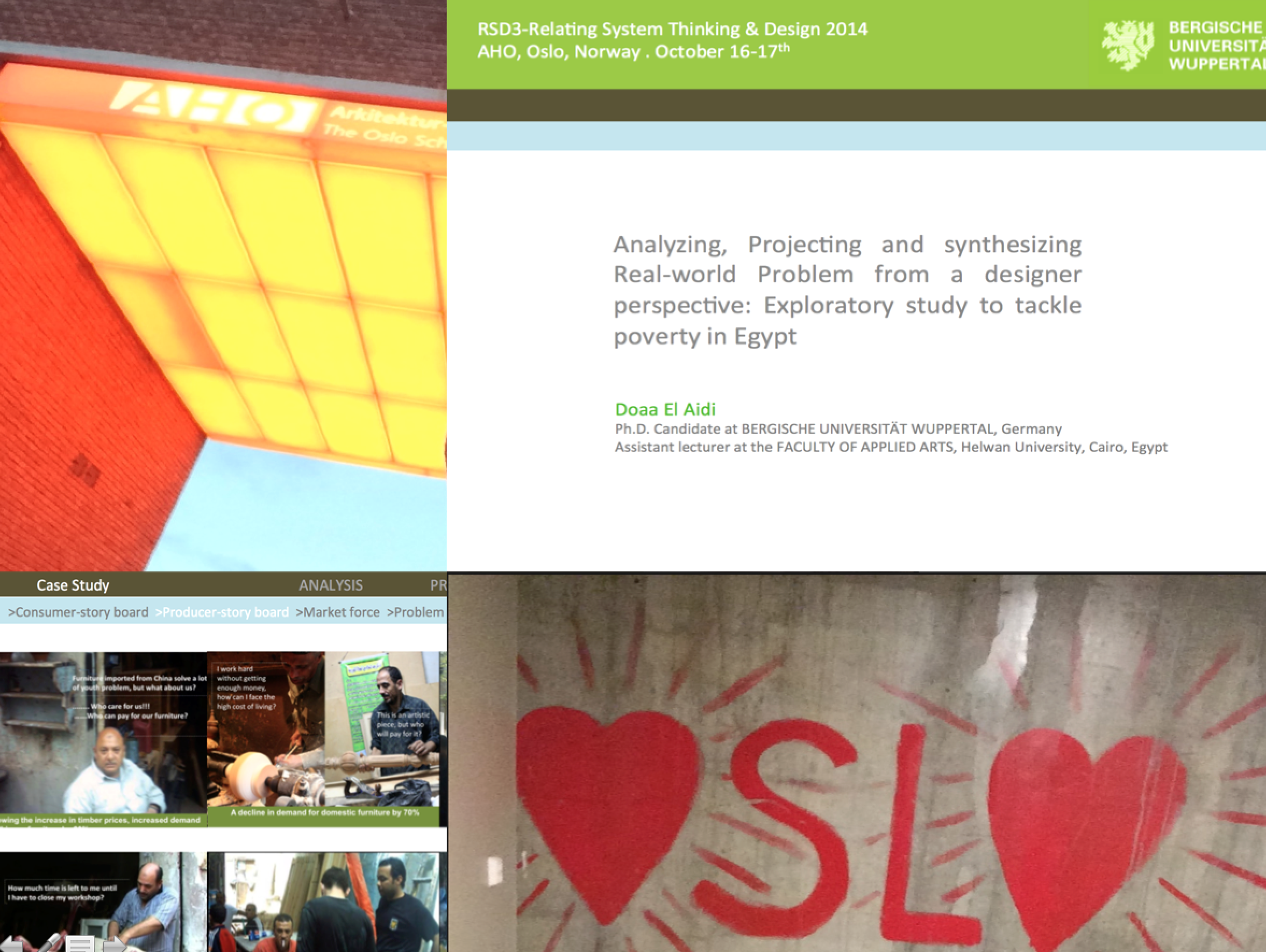
20 Jan Analyzing, Projecting and Synthesizing Real-World Problem from a Designers Perspective
Exploratory study to tackle poverty in Egypt
by Doaa El Aidi, speaking at the Relating Systems Thinking and Design Symposium, Oslo 2014
In design thinking, tackling Real-world problems is considered one of the most challenging issues; because these kinds of problems are complex, dynamic and cutting across different disciplines. Due to their complexity nature, the traditional design thinking – conceived as 1st generation methods – failed to let designers cope with such complex problems and considered the first obstacle in approaching Real-World problems. Therefore, designers must change their traditional way of thinking and acting in order to fulfill their new role in dealing with such complex problem and the question is how? What kind of methods and tools do designers need to develop their skills for coping with challenges they are facing; especially when they approaching Real-world-problems?
In this respect, the purpose of this study is twofold: to explore the answer of the previous raised question in a pragmatic way, as well as, to fill the gab between theoretical concepts and practical experiences through developing tangible solutions. Whereas, the ultimate aim of this study is to build bridge between academic research (efforts) and reality through dealing with society problems in a scientific way.
To accomplish the study’s purpose, a case study is chosen to explore the problem under real circumstances. Approaching Real-world problem such as tackling poverty in Egypt led to choose Al-Darb Al-Ahmar Revitalization Project (DAR). It is one of Aga Khan Trust for Culture (AKTC) projects running in Egypt that dealing with complex reality. This project aims at providing a comprehensive strategy that helps poor people to structure their life in a sustainable way. One particular program has been chosen as an intervention point called ‘Local Crafts development’ and data is collected through different project’s annual reports and through conducting expert interviews; using open-end questions to get more insight about project’s different activities.


